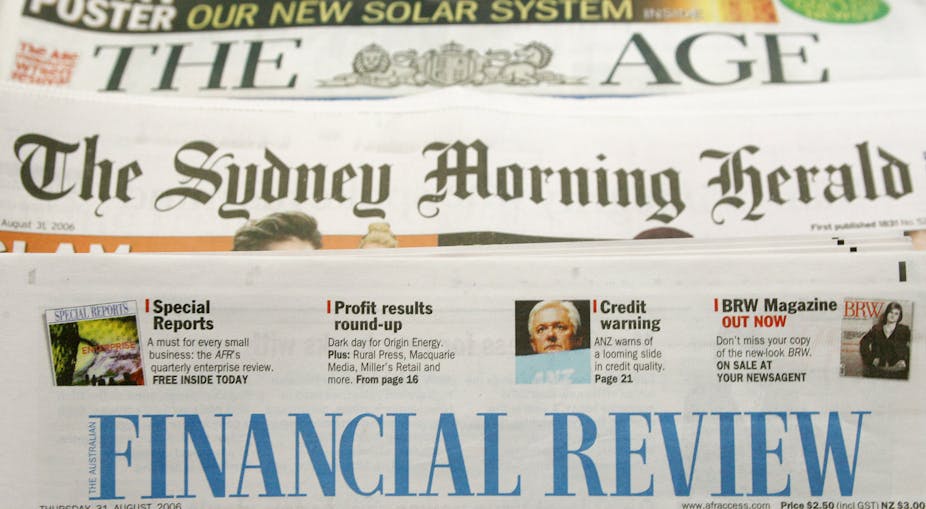The Gillard Government has announced it will hold an inquiry into the state of the Australian print media.
One of the key elements investigated will be the role of the Australian Press Council, the self-regulatory body that currently governs the industry.
While we will have to wait six months until the inquiry concludes, it is reasonable to expect that its conveners - former Federal Court judge Ray Finkelstein and University of Canberra academic Matthew Ricketson - will return findings with significant impact for the Press Council.
The Conversation spoke with RMIT journalism lecturer Josie Vine about how the Press Council operates and its evolution in Australia.
Is the Press Council really a toothless tiger as many critics allege?
It depends how you look at it. The way I teach journalism is as a set of cultural values and beliefs and those cultural values and beliefs align very much with the Press Council’s Statement of Principles.
First and foremost is freedom of expression being a right of everybody in this country and in democracies all over the world. That is how we function. In order to maintain freedom of expression we do have responsibilities and if we don’t behave ourselves as journalists as the public expects, then somebody else will walk in regulate the industry for us.
How did the Press Council come about?
It was set up by newspaper proprietors back in the 80s when the government was proposing to regulate the media. They offered to set up this self-regulatory body called the Australian Press Council, and the government agreed to it.
What flaws does the Press Council model of self-regulation have?
It can’t really enforce any type of punishment. But again if you look at journalism as a group of people with common values and beliefs they are the same values and beliefs as the Press Council: accurate reporting, transparency, honesty, that kind of thing.
The other problem is that it just covers newspapers and that is an issue in the online environment because newspapers are broadcasting just as much as television and radio is broadcasting.
It also can’t actually act on any indiscretions unless a member of the public makes a complaint.
Do certain media organisations have the ability to influence the Press Council’s operations?
Therein lies the problem of self-regulation generally. It is a conflict of interest. If you are going to publish that you have made some type of indiscretion which is usually the punishment for newspapers, they have to be able to be willing to do that.
That publishing of indiscretions, might only be a tiny item on the back of page four that people won’t even notice when the indiscretion might have been a huge front page news item.
It is certainly not a perfect system and I think if the owners or owner decided they didn’t want to play ball with the Press Council then it would all fall to pieces but Mr Murdoch, facing the trials he has of late, is little more sensitive to self–regulation these days.
Are there examples elsewhere in the world of press regulation that we could learn from?
The Press Complaints Commission in Britain I think has shown itself to be fairly weak, particularly in the News of the World type situation where regulation and government has had to step in and I think that is the biggest challenge for us as a self-regulatory system in that if we don’t regulate ourselves, somebody else will.
We have got to be very careful to behave ourselves in a manner that is expected while also juggling with freedom of expression and freedom of speech. The last thing we want is for somebody to walk in and regulate us because then that is it, forget the idea of freedom of the press.

